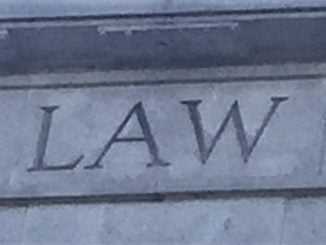
Despite the North Carolina Supreme Court’s public commitment to the School Justice Partnership and its noble mission of reducing the number of children tossed into the justice system for “student misconduct,” a recent decision reveals that the court is still treating some children with a heavy hand and mis-weighing evidence in the process.
In the case In re: T.T.E., the Supreme Court considered whether the Court of Appeals rightly dismissed a disorderly conduct charge the state brought against a child for “throwing a chair toward another student in the school’s cafeteria.”
Under North Carolina law, the Supreme Court had to determine whether the state presented substantial evidence that the child “intentionally” perpetrated an “annoying, disturbing, or alarming act or condition exceeding the bounds of social toleration” by “[e]ngag[ing] in fighting or other violent conduct or in conduct creating the threat of imminent fighting or other violence.”
The Court of Appeals had already determined there was not enough evidence to charge the child with this Class 2 misdemeanor, but after mis-weighing the evidence, the Supreme Court decided otherwise.
The state had only two witnesses to support its case — the resource officer who saw the child toss the chair and a teacher who saw the officer apprehend the child in the hallway.
The resource officer testified that he saw T.T.E., a child too young to be named, “pick up a chair and throw it across the cafeteria” before running out of the room. No one was hit with the chair and the officer did not see anyone around who even could have been hit by the chair. The officer followed T.T.E. into the hallway and quietly snuck up to grab him from behind. The teacher testified that for about a minute and a half he witnessed the child pulling away from the officer, and saying “no,” as some students stopped to watch the officer handcuff him.
T.T.E. was then taken to a conference room where the teacher described him as being “remarkably calm” and “very respectful.” T.T.E. told the officer that he threw the chair, “at his brother because they were playing or something.”
The state initially filed two court petitions against T.T.E., a disorderly conduct petition for throwing a chair in the cafeteria and another for resisting a public officer during his apprehension. The Court of Appeals dismissed both petitions for a lack of evidence, but the state only asked for the Supreme Court to consider whether the dismissal of the disorderly conduct petition was appropriate.
This is where things went awry.
Rather than focusing its legal analysis on the state’s request, the Supreme Court inappropriately considered evidence regarding the child’s alleged resistance of the resource officer. The court reasoned there was substantial evidence to support a disorderly conduct charge against T.T.E. because the teacher considered his arrest a “significant safety issue with students gravitating towards [the] situation.”
However, the disorderly conduct petition was based on T.T.E.’s behavior in the cafeteria, meaning an arrest that occurred in the hallway was irrelevant to the charge. The court also reasoned that “the [officer] considered the juvenile’s act of throwing the chair as constituting conduct that disrupted or disturbed the process of school.” However, the officer’s complete testimony stated that he did not witness anyone have to maneuver to avoid the chair, and that “he could not definitively say whether the juvenile’s actions were actually disruptive to other students as they went to class.”
The Supreme Court’s mis-weighing of evidence should concern us all because subjecting our children to the justice system, unlike child’s play, is not a game. The School Justice Partnership was established to protect our children in recognition of this fact, but the court’s decision undermined its mission. Our law requires that criminal charges be reserved for individuals who engage in “intentional” “alarming” and “violent” or “imminently violent” behavior, not for children who, as the evidence shows here, “were playing or something.”
Amber Koonce is a graduate of UNC Chapel Hill and Yale Law and from Charlotte. She currently works as a Civil Rights Fellow in New York.



